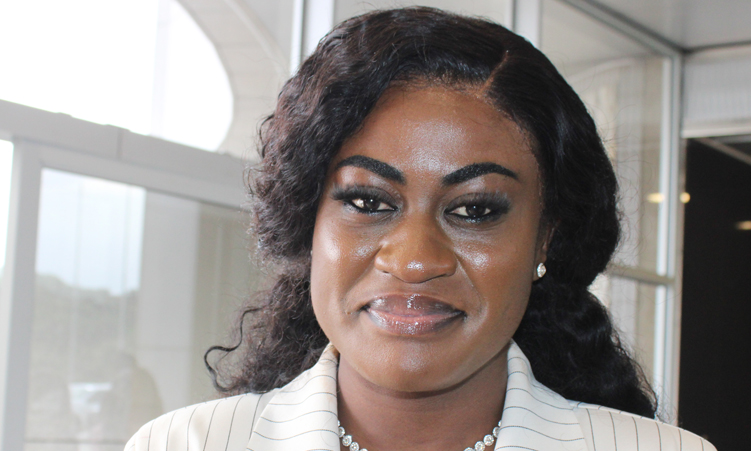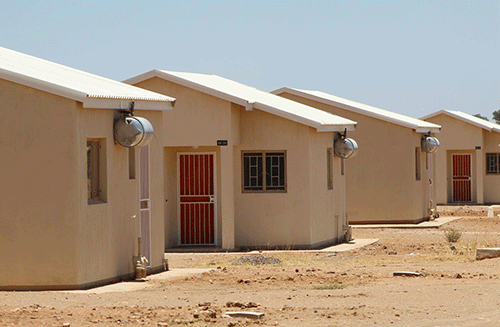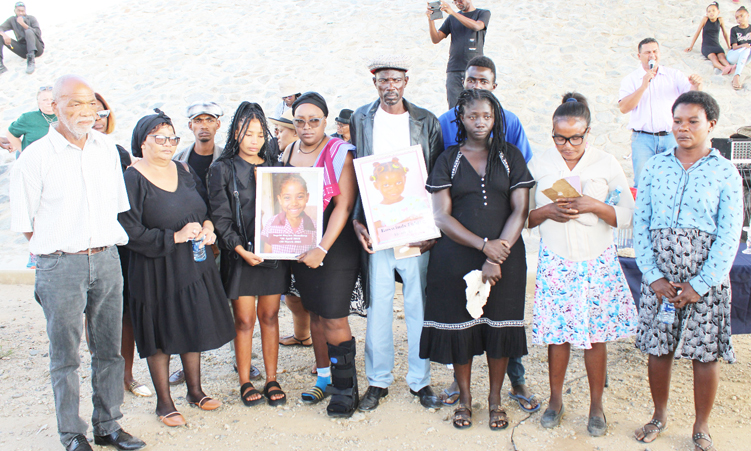A Walvis Bay widow, Ruxanda Trusculesco, is looking to the Namibian High Court to claim several millions of Namibian dollars from Etosha Fishing Corporation in Walvis Bay, for the alleged “unfair moral and financial treatment” she and her son had suffered after her husband was killed during a fishing accident, which she claims was due to negligence from the company’s side.
On November 30 2004 at Stompneusbaai in South Africa, Alexandru Trusculesco (48), Chief Engineer of the Advance – a pelagic fishing trawler belonging to Etosha Fishing – was killed on the vessel while it was moored at the jetty. The jetty at the time belonged to St Helena Bay Fishing Industry, which together with Etosha Fishing is a subsidiary of the Oceana Group.According to an incident report by the South African Maritime Safety Authority (SAMSA), the Advance was offloading fish while simultaneously being fuelled when the incident occurred.The cast-iron bollard next to the gangway on the jetty, used to fasten the vessel to the jetty, tore off and catapulted onto the vessel where it struck the Chief Engineer behind the head, killing him instantaneously.The sheared piece of bollard weighed approximately 139 kg.A combination of factors, as suggested in the report, such as the vessel being bigger than what the jetty was originally built for; the bollard and ropes allegedly not being properly fastened; the vessel not being loaded strictly in accordance with the stability book; the maintenance of the bollards appeared lacking; and that the swell of the ocean had an effect on the boat’s stability next to the jetty, led to the accident.The swing position of a derrick pole found after the incident, according to the SAMSA report, further aggravated stability inconsistencies.After his death, Etosha Fishing paid N$100 000 to Trusculesco’s dependants – Ruxanda and her son, Alex.After about three months, the company discontinued their medical aid cover and informed the widow to make “alternate arrangements”.The benefit withdrawal letter further stated, “Our concern in particular is for your son and his condition”.Alex suffers from asthma and needs expensive chronic medication.After the death of her husband, Ruxanda requested an official investigation into the case, after which she obtained the SAMSA report.The South African Prosecuting Authority also concluded a death inquest on May 28 2007, which she received in August 2007.The Managing Director of Etosha Fishing, Flip Conradie, told The Namibian that he was not aware of any inquest and did not wish to comment on the SAMSA report, “as it served no purpose”.Ruxanda initially approached the District Labour Court, but the case was dismissed because the court does not have jurisdiction in the matter.The widow told The Namibian she believes the company is trying to shrug off its moral responsibility, and that although she suffers financially, she will do everything in her power to bring all events pertaining to the death of her husband to book.Asked for comment on the incident, Etosha Fishing Corporation’s financial manager, Bernhard Grove, said the matter is “very sensitive and contentious and subject to litigation” and he therefore wished not to comment to the press.The jetty at the time belonged to St Helena Bay Fishing Industry, which together with Etosha Fishing is a subsidiary of the Oceana Group.According to an incident report by the South African Maritime Safety Authority (SAMSA), the Advance was offloading fish while simultaneously being fuelled when the incident occurred.The cast-iron bollard next to the gangway on the jetty, used to fasten the vessel to the jetty, tore off and catapulted onto the vessel where it struck the Chief Engineer behind the head, killing him instantaneously.The sheared piece of bollard weighed approximately 139 kg.A combination of factors, as suggested in the report, such as the vessel being bigger than what the jetty was originally built for; the bollard and ropes allegedly not being properly fastened; the vessel not being loaded strictly in accordance with the stability book; the maintenance of the bollards appeared lacking; and that the swell of the ocean had an effect on the boat’s stability next to the jetty, led to the accident.The swing position of a derrick pole found after the incident, according to the SAMSA report, further aggravated stability inconsistencies.After his death, Etosha Fishing paid N$100 000 to Trusculesco’s dependants – Ruxanda and her son, Alex.After about three months, the company discontinued their medical aid cover and informed the widow to make “alternate arrangements”.The benefit withdrawal letter further stated, “Our concern in particular is for your son and his condition”.Alex suffers from asthma and needs expensive chronic medication.After the death of her husband, Ruxanda requested an official investigation into the case, after which she obtained the SAMSA report.The South African Prosecuting Authority also concluded a death inquest on May 28 2007, which she received in August 2007.The Managing Director of Etosha Fishing, Flip Conradie, told The Namibian that he was not aware of any inquest and did not wish to comment on the SAMSA report, “as it served no purpose”.Ruxanda initially approached the District Labour Court, but the case was dismissed because the court does not have jurisdiction in the matter.The widow told The Namibian she believes the company is trying to shrug off its moral responsibility, and that although she suffers financially, she will do everything in her power to bring all events pertaining to the death of her husband to book.Asked for comment on the incident, Etosha Fishing Corporation’s financial manager, Bernhard Grove, said the matter is “very sensitive and contentious and subject to litigation” and he therefore wished not to comment to the press.
Stay informed with The Namibian – your source for credible journalism. Get in-depth reporting and opinions for
only N$85 a month. Invest in journalism, invest in democracy –
Subscribe Now!










